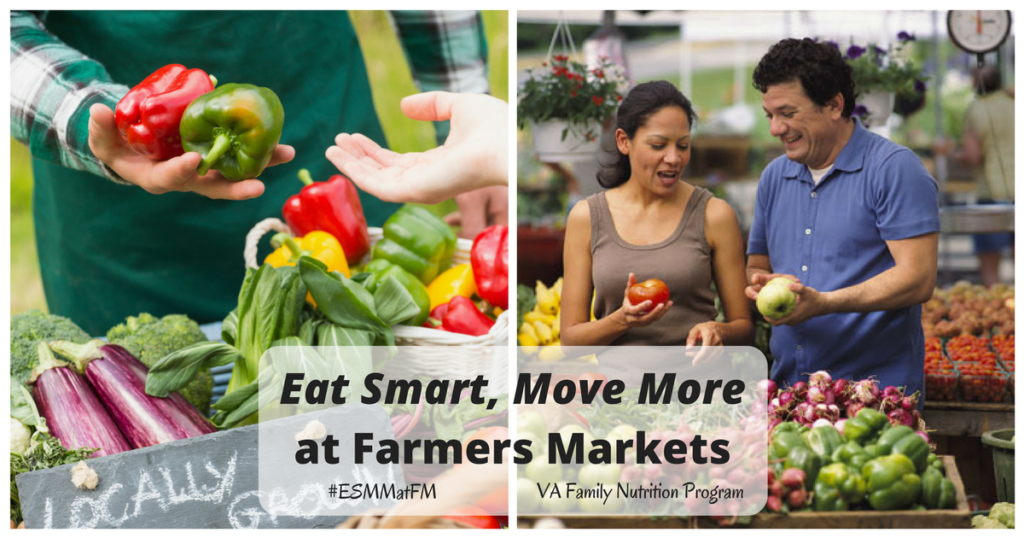Farmers markets are a popular destination for fresh, healthy foods grown in the local area. As more markets accept SNAP/EBT and offer SNAP matching programs, farmers markets are growing in popularity for SNAP shoppers looking for healthy food options for their families. Farmers markets have a reputation for being expensive, but with these tips, you can shop smart and stick to a budget.
Scope out the market ahead of time.
Look up your local farmers market online to find out important information (hours, parking, payments accepted, etc.) as you plan your trip. Look for markets that offer SNAP matching programs, where they will give you extra tokens when you use your SNAP card.
Many farmers markets have social media accounts where they share helpful information, such as products or vendors that will be at the market. The more information you have ahead of time, the smoother your trip will be.
Have a plan, but be flexible.
We strongly encourage meal planning as a way to save time and money while eating smart. This approach works great when shopping at a grocery store. Pick your meals, make a grocery list, and stick to the list, simple as that.
But farmers markets are a little different. They don’t have the same amount of products at the store, so you may not be able to get everything you need. They also might run out of items or not have as good a price as the grocery store. On the other hand, they might have an amazing price on items you hadn’t planned for, so you may need to rearrange the menu on the spot. With practice, you’ll figure out a system that works for you.
Tour the market before you buy anything.
There are a few reasons why it’s better to start off by browsing the market before starting to shop. Each vendor sells different products at slightly different prices. Note which farmers have the best prices on the items on your list as you walk around the market and then buy from them. You might need to swap ingredients on the fly if it’s not available at the market that day because it’s not in season or it may have already sold out. Or you might spot an awesome deal and need to make a different meal around that item.
Ask for advice from people who know the market.
The farmers themselves are a great resource for questions you might have about their products. They’ll know the best way to store fresh produce, simple ways to cook it, and more.
For more general questions about the market, look for the farmers market manager (usually in the same place you swipe your EBT card). The farmers market manager can help you use your EBT card, explain their SNAP match system (if they have one), and give their advice for best navigating the market.
You might also find an FNP intern or volunteer showing how to prepare simple, nutritious recipes using produce from the market. Best of all, our volunteers and interns offer free taste tests of the recipes they’re preparing.
Try one new food.
Farmers markets offer a wide variety of produce you might not have seen in a grocery store. That’s one of the many benefits of shopping at a farmers market. But not every new food will be an instant family favorite. To keep the waste to a minimum, spend most of your budget on familiar foods you know your family will enjoy.
But make a point to buy one new item to try. Ask the vendor for recommendations on how to prepare it and what it might taste like. This is a great way to involve your kids, especially if you turn it into a game. Each week, you can challenge them to pick a new fruit or vegetable that’s a certain color or part of the plant. When kids have the opportunity to choose, they’re more likely to try (and like) new foods.
What other tips do you have for saving money when shopping at a farmers market?


One comment on “Five Tips for Shopping Smart at Farmers Markets”